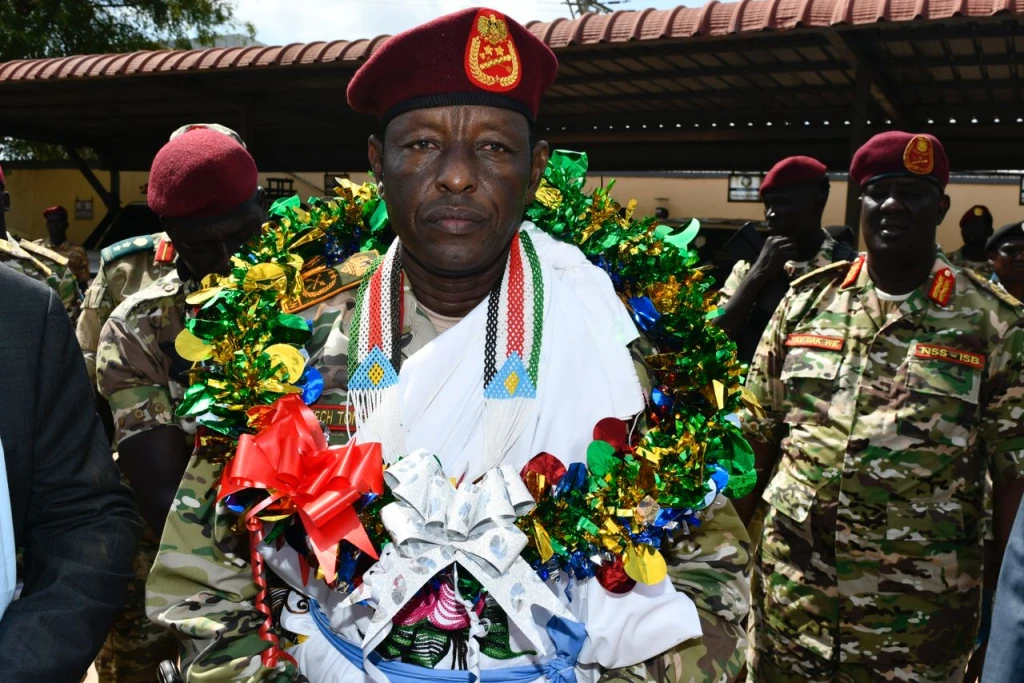
The newly appointed director general of South Sudan's Internal Security Bureau has pledged to fight corruption and abuses of power and restore integrity within the national intelligence agency.
Gen. Akec Tong Aleu made the pledge on Tuesday at his reception in the National Security Service’s headquarters (Blue House).
Akec replaced Gen. Akol Koor, who had led the NSS's Internal Security Bureau (ISB) for 13 years since South Sudan gained independence from Sudan.
In the last 13 years, the agency faced widespread criticism for human rights abuses, involvement in political repression, and corruption.
The National Security Service Act, 2014 (amended) permits national security to make arrests with or without a warrant, a practice that rights activists view as a form of power abuse.
“From today onwards, the act of corruption that is taking place in this country should stop, and this is a redline between you and my position. I have relatives among you but do not see me as your relative, even my sons are among you, my children are among you, but this is a red line. Do not cross it! Once you cross it, you all carry your crosses,” Tong declared.
“This is what brought me to this institution and my country, and from here I will go to my house; I do not want to corrupt my legacy because I fought for this country.”
The spy chief warned against misuse of the agency powers for political gain and corruption.
“Lobbying for any political position by any individual through the power and authority of the Director General of the National Security Bureau is strictly prohibited; all ISB officers should strictly stick to their mandate,” said Akec.
“I want to be an example for this nation that I’m not corrupt because all of us who are coming from the bush are being accused of that.”
Gen Tong's appointment comes at a critical juncture for South Sudan, where the NSS has been accused of acting as a tool for political repression, arbitrary arrests, and curtailing freedom of expression.
International human rights organizations frequently criticized the NSS under Gen. Akol Koor's leadership for abuses, including the detention of journalists, activists, and opposition figures.
Gen. Obuto Mamur Mete, Minister of National Security, used the occasion to urge the new spy chief and the NSS to focus on external threats, particularly concerning the country’s territorial integrity.
“Our mission as national security is controlled by great accountability. We must not look inward. We must look outward to see our map of South Sudan from 1947 and how we can bring it back to our land,” Mamur stated.
“We must concentrate on development and prepare to face any enemy outside, externally, and not within us. Why are we every time being used against ourselves? Just because you want to become a leader? That should be out of us as national security. That is why national security is the neutral element that overcomes all the other elements in the universe.”
Mamur emphasized the need for the NSS to stay clear of internal political conflicts, cautioning against the use of the security service for personal or tribal gains.
He reminded the new leadership that their role is to protect all citizens equally, regardless of ethnic or political affiliation.
“We must protect all South Sudanese, regardless of so-called tribalism, color, or gender. They are all South Sudanese. There is no enemy among you. Never be conned by all those who are buying some of you,” Mamur urged.
Mamur's speech also reflected growing concerns about South Sudan’s borders, where territorial encroachments by neighboring states remain a critical issue.